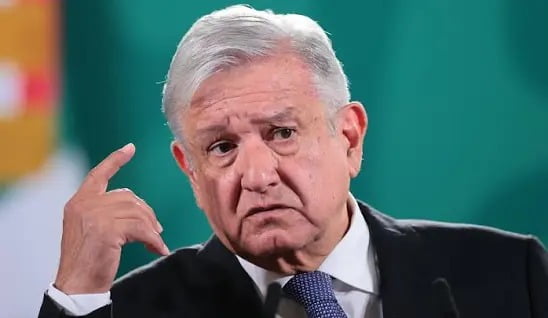Mexico’s president said Thursday his country wants the United Nations to suspend Ecuador from the world body as part of a complaint to the top U.N. court over Ecuador’s police raid last week on the Mexican embass y in Quito.
Tensions between Mexico and Ecuador have soared since late last week when Ecuadorian authorities forced their way into the diplomatic mission to arrest Ecuador’s former Vice President Jorge Glas who had been holed up there seeking asylum in Mexico.

Mexico filed its complaint Thursday at the International Court of Justice in the Netherlands asking the U.N. to suspend Ecuador, although a U.N. spokesman in New York said it would be up to other member states to decide on suspending a country.
President Andrés Manuel López Obrador, at a news conference in Mexico City, railed against Ecuador and said that the court, “by the United Nations charter, should approve the expulsion, and there should be no veto” from the U.N. Security Council. López Obrador said Mexico is demanding a public apology from Ecuador for the raid, reparation of damages, and a promise not to do it again. Ecuadoran Foreign Minister Gabriela Sommerfeld said her country would defend its actions and said an apology “is not something that is under discussion at this moment.” The two countries have been tussling over Glas, a convicted criminal and fugitive, since he took refuge at Mexico’s embassy in December.
Ecuador has argued that Glas has been targeted for crimes, not for political reasons, and that Mexico should not have been considering asylum for him. On April 5, Ecuadorian police scaled the embassy walls and broke into the building.
Roberto Canseco, Mexico’s head of consular affairs and the highest-ranking diplomat present since Ecuador expelled the ambassador earlier in the week, tried to keep them from entering, even pushing a large cabinet in front of a door. But police restrained him and pushed him to the floor as they carried Glas out. The two countries have been tussling over Glas, a convicted criminal and fugitive, since he took refuge at Mexico’s embassy in December.
Ecuador has argued that Glas has been targeted for crimes, not for political reasons, and that Mexico should not have been considering asylum for him. On April 5, Ecuadorian police scaled the embassy walls and broke into the building.
Roberto Canseco, Mexico’s head of consular affairs and the highest-ranking diplomat present since Ecuador expelled the ambassador earlier in the week, tried to keep them from entering, even pushing a large cabinet in front of a door. But police restrained him and pushed him to the floor as they carried Glas out. On Tuesday, Ecuador’s Deputy Minister of Human Mobility Alejandro Dávalos told representatives of the Organization of American States gathered in Washington, D.C. that Glas did not meet the requisites to merit receiving asylum from Mexico and could not be considered politically persecuted.
But OAS Secretary General Luis Almagro noted that “the use of force, the illegal incursion into a diplomatic mission, nor the detention of an asylee are the peaceful way toward resolution of this situation.” He said Ecuador’s actions could not be allowed to set a precedent.



